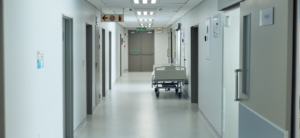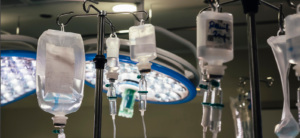Fire safety in hospitals is not just about compliance; it’s about protecting the lives of patients, staff, and visitors. Hospitals are complex environments with unique challenges, including vulnerable patients, intricate electrical systems, and the use of flammable materials. At Drax360, we understand the paramount importance of fire safety in healthcare settings.
The Importance of Fire Safety in Hospitals
Hospitals are critical infrastructures that serve as a lifeline for communities. Ensuring fire safety in these settings is paramount for several reasons:
High Occupant Density
- Hospitals are densely populated environments. During peak hours, hospitals can be bustling with patients, staff, and visitors, making evacuation in an emergency a complex task.
- The concentration of people in confined areas increases the potential for casualties in the event of a fire.
Vulnerable Individuals
- Many patients in hospitals are highly vulnerable. Patients in intensive care units (ICUs), operating rooms, and those with mobility issues require additional assistance during evacuations.
- Some patients may be under sedation, attached to life-support systems, or undergoing critical procedures, making rapid evacuation more challenging.
Complex Infrastructure
- Hospitals are equipped with an array of advanced medical equipment and intricate electrical systems. These are essential for patient care but also present potential fire hazards if not properly maintained.
- The presence of specialised departments such as radiology, laboratories and pharmacies involves the use of flammable chemicals and materials.
Operational Continuity
- Hospitals must remain operational 24/7. A fire can disrupt services, endangering lives and causing significant financial losses.
- Ensuring fire safety is integral to maintaining the uninterrupted provision of healthcare services.

Common Fire Hazards in Hospitals
Identifying potential fire hazards is the first step toward prevention. Common fire hazards in hospitals include:
Electrical Equipment
- Overloaded Circuits: The extensive use of medical and office equipment can lead to overloaded electrical circuits. This is particularly common in older buildings where electrical systems may not be designed to handle modern demands.
- Faulty Wiring: Aging infrastructure and improper maintenance can result in electrical faults. Regular inspections are essential to identify and rectify wiring issues before they become fire hazards.
- Equipment Malfunction: Medical devices, computers, and other equipment can overheat or malfunction, posing a fire risk. Ensuring that all equipment is regularly serviced and used according to manufacturer guidelines is crucial.
Flammable Materials
- Oxygen Tanks: Oxygen is essential for patient care but highly flammable. Proper storage and handling of oxygen tanks are critical to prevent accidental ignition.
- Medical Supplies: Alcohol-based sanitisers, disinfectants, and other chemicals used in medical procedures are flammable. These materials should be stored in fire-resistant cabinets and away from ignition sources.
- Bedding and Furniture: Hospital bedding, curtains, and furniture are often made from materials that can quickly ignite and spread fire. Using fire-retardant materials can significantly reduce this risk.
Cooking Areas
- Kitchens and Break Rooms: Regular cooking activities increase the risk of fires due to unattended cooking, grease buildup or malfunctioning appliances. Proper ventilation, regular cleaning and supervision are essential in these areas.
Waste Management
- Improper Disposal: Inadequate disposal of flammable waste, such as used medical supplies and chemicals, can lead to fire hazards. Implementing strict waste management protocols and regular disposal schedules is necessary to mitigate these risks.

Strategies for Enhancing Fire Safety in Hospitals
Comprehensive Risk Assessment:
Conduct regular fire risk assessments to identify and mitigate potential hazards. This includes evaluating electrical systems, storage areas, and operational practices.
Our expert team provides thorough risk assessment services, identifying vulnerabilities and recommending tailored solutions. We employ advanced technologies to ensure your hospital’s safety.
Fire Detection Systems:
- Smoke Detectors and Alarms: Install and maintain a comprehensive network of smoke detectors and fire alarms throughout the hospital.
- Sprinkler Systems: Ensure that sprinkler systems are installed in critical areas and regularly inspected.
- Fire Extinguishers: Place fire extinguishers in accessible locations and ensure staff are trained in their use.
Our cutting-edge fire detection systems are designed to meet the specific needs of hospitals. We provide and maintain:
- Advanced smoke detection systems
- Reliable fire alarm systems
- Efficient sprinkler systems
- Portable and accessible fire extinguishers
Emergency Evacuation Plans:
- Clear Signage: Install clear and visible signage indicating emergency exits and evacuation routes.
- Mobility Assistance: Have a plan in place for assisting patients with limited mobility during an evacuation.
- Assembly Points: Designate safe assembly points for evacuated individuals.
We help you design and implement effective emergency evacuation plans, ensuring clear signage, mobility assistance protocols, and well-defined assembly points.
Maintenance and Housekeeping:
- Regular Inspections: Conduct regular inspections of electrical systems, equipment, and fire safety devices.
- Proper Storage: Store flammable materials in designated areas away from ignition sources.
- Cleanliness: Maintain a high standard of cleanliness to reduce the risk of fire from accumulated waste and debris.
Our maintenance services ensure that all fire safety systems and equipment are in optimal condition. We also offer guidance on proper storage practices and housekeeping standards to minimise fire risks.
How Drax360 Can Help
At Drax360, we are dedicated to providing comprehensive fire safety solutions tailored to the unique needs of healthcare environments. Our services include:
- Fire Risk Assessments: Identifying potential fire hazards and recommending effective solutions.
- Fire Detection: Installing and maintaining advanced fire detection, alarm, and suppression systems.
- Maintenance Services: Regular inspections and maintenance of fire safety equipment and systems.
Fire safety in hospitals is a multifaceted challenge that requires a proactive and comprehensive approach. By identifying common fire hazards, implementing robust fire safety measures and ensuring regular training and maintenance, hospitals can significantly reduce the risk of fire and protect the lives of everyone within their facilities. At Drax360, we are committed to providing the highest standards of fire safety solutions tailored to the unique needs of healthcare environments.





